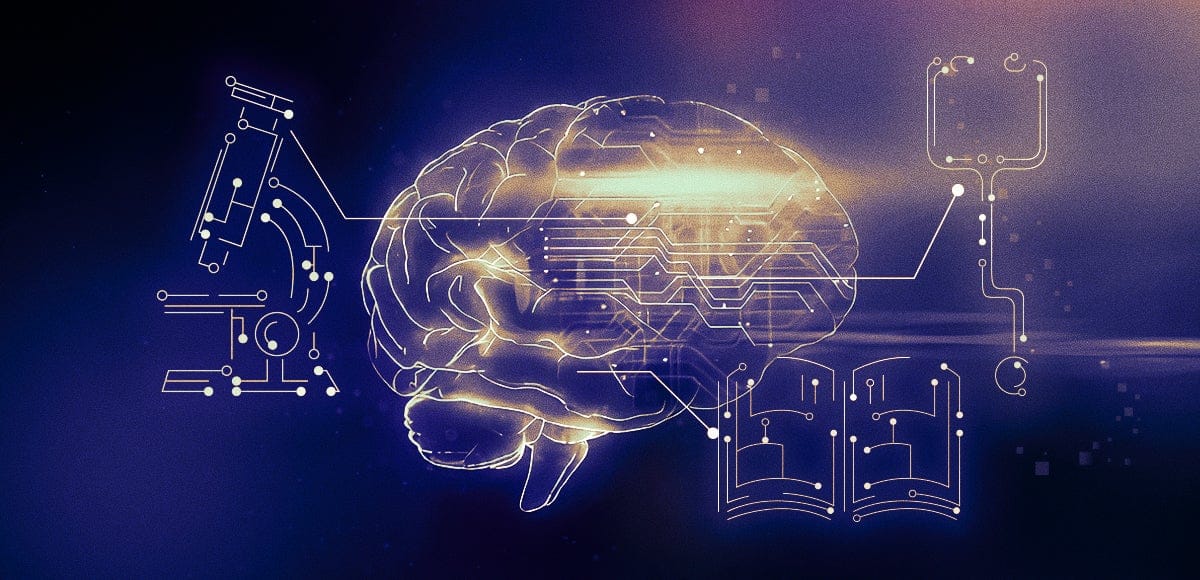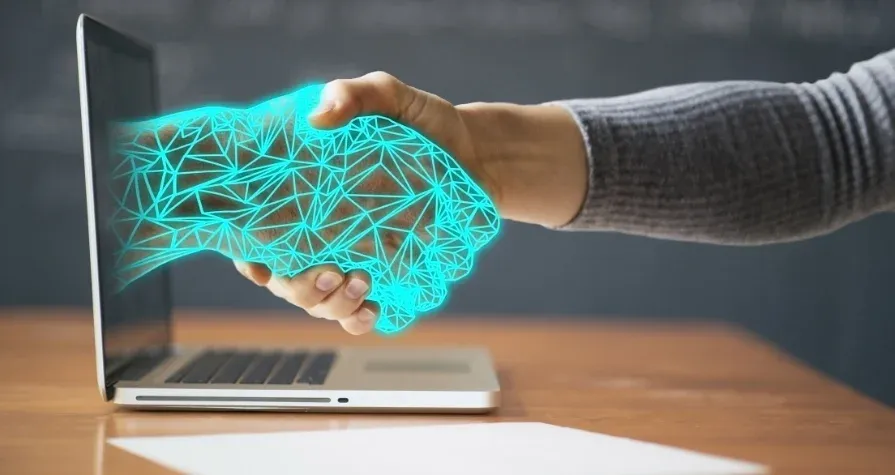How Are We Adapting to AI's Psychological and Social Impacts?
One of the most immediate psychological effects of increasing automation and AI is anxiety and stress. The fear of job displacement due to automation is a significant source of stress for many workers.

Introduction
Automation and artificial intelligence have made rapid progress, changing human life in many respects. Changes have taken place in sections such as manufacture, health care, finance and entertainment industry to mention just a few examples of how these technologies have changed the way we live, work and relate with one another. On the other hand there are several psychological and social effects that are as a result of automation and AI beyond the numerous benefits like increased efficiency, cost savings or improved quality of life.

This article discusses some psychological implications on personal lives as well as social concerns stemming from a world increasingly dominated by automation and AI. We will examine how these technologies affect mental health, interpersonal relationships, jobs and overall structure of societies themselves.
The Psychological Effects of Automation and AI
Anxiety and Stress
One of the most immediate psychological effects of increasing automation and AI is anxiety and stress. The fear of job displacement due to automation is a significant source of stress for many workers. A 2019 report by the World Economic Forum estimated that by 2025, 85 million jobs may be displaced by a shift in the division of labor between humans and machines. This looming threat of unemployment can lead to chronic anxiety and stress, affecting mental health and well-being.
Moreover, the rapid pace of technological change can create a sense of uncertainty and instability. Individuals may feel overwhelmed by the need to constantly adapt to new tools and systems, leading to feelings of inadequacy and fear of being left behind. This constant pressure to keep up with technological advancements can contribute to burnout and mental fatigue.
Loss of Identity and Purpose
Work is a significant source of identity and purpose for many people. It provides structure, routine, and a sense of contribution to society. However, as automation and AI take over more tasks, individuals may experience a loss of identity and purpose. This is particularly true for those in industries heavily impacted by automation, such as manufacturing and transportation.
The concept of "technological unemployment" poses a challenge to the traditional notion of work. As machines become more capable of performing tasks that were once the exclusive domain of humans, individuals may struggle to find their place in the workforce. This can lead to a crisis of identity, where people feel disconnected from their sense of self-worth and purpose.
Digital Addiction and Overreliance
The proliferation of AI-driven technologies, such as social media algorithms and personalized content recommendations, has also contributed to digital addiction and overreliance on technology. These platforms are designed to capture and retain users' attention, often leading to excessive screen time and addictive behaviors. The constant exposure to digital stimuli can interfere with daily activities, sleep patterns, and overall mental health.
Moreover, the overreliance on AI and automation can erode critical thinking and problem-solving skills. When individuals become overly dependent on technology to perform tasks and make decisions, they may lose the ability to think independently and creatively. This can hinder personal growth and cognitive development.
The Social Effects of Automation and AI
Changes in Employment and Workforce Dynamics
One of the most significant social effects of increasing automation and AI is the transformation of employment and workforce dynamics. While automation can lead to job displacement, it also creates new opportunities in emerging fields. For instance, the rise of AI has spurred demand for data scientists, machine learning engineers, and cybersecurity experts.
However, this shift in the job market can exacerbate social inequalities. Workers with the skills and resources to adapt to new technologies will thrive, while those without access to education and training may be left behind. This digital divide can deepen existing socioeconomic disparities, leading to increased social stratification.
Moreover, the gig economy, facilitated by AI-driven platforms like Uber and TaskRabbit, has redefined traditional employment relationships. While gig work offers flexibility and autonomy, it also lacks the stability and benefits associated with full-time employment. This precarious nature of gig work can lead to financial insecurity and social instability.
Shifts in Social Interactions
Automation and AI have also transformed the way we interact with one another. Social media platforms, powered by AI algorithms, have become central to our social lives. These platforms facilitate connections and communication but also contribute to the erosion of face-to-face interactions. The rise of virtual communication can lead to feelings of isolation and loneliness, as digital interactions often lack the depth and intimacy of in-person connections.
Furthermore, AI-driven technologies have infiltrated various aspects of daily life, from virtual assistants like Siri and Alexa to automated customer service chatbots. While these technologies offer convenience, they also reduce the need for human interaction in routine tasks. This shift can diminish the quality of social interactions and reduce opportunities for meaningful human connections.
Ethical and Privacy Concerns
The increasing use of AI and automation raises significant ethical and privacy concerns that impact society as a whole. AI systems are often trained on vast amounts of data, which can include sensitive personal information. The collection, storage, and use of this data raise questions about privacy and surveillance. Individuals may feel uncomfortable or violated knowing that their personal information is being used to train AI algorithms.
Moreover, the ethical implications of AI decision-making are a growing concern. AI systems can perpetuate and even amplify existing biases in society. For example, biased algorithms in hiring processes can lead to discriminatory practices, disproportionately affecting marginalized groups. Addressing these ethical issues requires careful consideration and regulation to ensure that AI is used responsibly and fairly.
The Positive Aspects of Automation and AI
While the psychological and social effects of automation and AI can be challenging, it is essential to acknowledge the positive aspects of these technologies. Automation and AI have the potential to improve the quality of life in numerous ways.
Increased Efficiency and Productivity
Automation and AI can significantly enhance efficiency and productivity in various sectors. In healthcare, AI-powered diagnostic tools can analyze medical data with greater accuracy and speed, leading to early detection of diseases and improved patient outcomes. In manufacturing, automation can streamline production processes, reduce errors, and increase output.
These improvements in efficiency can lead to cost savings and economic growth. Organizations can allocate resources more effectively, and individuals can benefit from improved services and products. The increased productivity also frees up time for individuals to engage in more meaningful and fulfilling activities, contributing to a better work-life balance.
Enhanced Access to Information and Education
AI-driven technologies have democratized access to information and education. Online learning platforms, powered by AI, offer personalized learning experiences tailored to individual needs and preferences. This accessibility allows people from diverse backgrounds to acquire new skills and knowledge, promoting lifelong learning and professional development.
Moreover, AI can help bridge language barriers and facilitate cross-cultural communication. Translation tools powered by AI, such as Google Translate, enable people to communicate and collaborate across different languages and cultures. This fosters greater understanding and cooperation in an increasingly globalized world.
Improved Quality of Life

Automation and AI can enhance the quality of life by reducing the burden of mundane and repetitive tasks. Smart home technologies, for example, can automate household chores, allowing individuals to spend more time on activities they enjoy. AI-powered healthcare devices can monitor health conditions and provide personalized recommendations, improving overall well-being.
Additionally, AI-driven entertainment platforms offer personalized content recommendations, enhancing the overall entertainment experience. These technologies can cater to individual preferences, making it easier to discover new music, movies, and books that align with personal tastes.
Navigating the Future of Automation and AI
As automation and AI continue to evolve, it is crucial to navigate their development and integration into society thoughtfully. Policymakers, educators, and industry leaders must collaborate to address the psychological and social effects of these technologies and ensure that they are harnessed for the greater good.
Promoting Digital Literacy and Education
To mitigate the negative psychological and social effects of automation and AI, it is essential to promote digital literacy and education. Individuals need to develop the skills required to adapt to a rapidly changing technological landscape. This includes not only technical skills but also critical thinking, problem-solving, and ethical reasoning.
Educational institutions must update their curricula to include AI and automation-related topics, preparing students for the future job market. Lifelong learning programs should also be encouraged, enabling workers to upskill and reskill throughout their careers. By fostering a culture of continuous learning, society can better adapt to technological advancements and reduce the digital divide.
Addressing Ethical and Privacy Concerns
Ensuring the ethical use of AI and protecting privacy are paramount. Policymakers must establish robust regulations and guidelines to govern the development and deployment of AI technologies. This includes transparency in AI decision-making processes, accountability for biased outcomes, and strict data privacy protections.
Organizations must also prioritize ethical considerations in their AI initiatives. This involves conducting regular audits to identify and mitigate biases, ensuring diverse representation in AI development teams, and engaging in open dialogue with stakeholders to address ethical concerns.
Fostering Social Connections and Mental Well-Being
In a world increasingly mediated by technology, fostering social connections and mental well-being is essential. Efforts should be made to encourage face-to-face interactions and community engagement. Social spaces, both physical and virtual, should be designed to facilitate meaningful connections and reduce feelings of isolation.
Mental health support services must be readily available to address the psychological effects of automation and AI. Employers should prioritize employee well-being, providing resources and support for managing stress and anxiety related to technological changes. Promoting a healthy work-life balance and encouraging regular breaks from digital devices can also contribute to overall mental health.
Conclusion
The psychological and social effects of living in a world with increasing automation and AI are complex and multifaceted. While these technologies offer numerous benefits, including increased efficiency, enhanced access to information, and improved quality of life, they also present significant challenges. Anxiety, stress, loss of identity, digital addiction, and ethical concerns are just a few of the issues that must be addressed.
By promoting digital literacy, addressing ethical and privacy concerns, and fostering social connections and mental well-being, society can navigate the future of automation and AI more effectively. Collaboration among policymakers, educators, industry leaders, and individuals is essential to harness the potential of these technologies while mitigating their negative effects.





